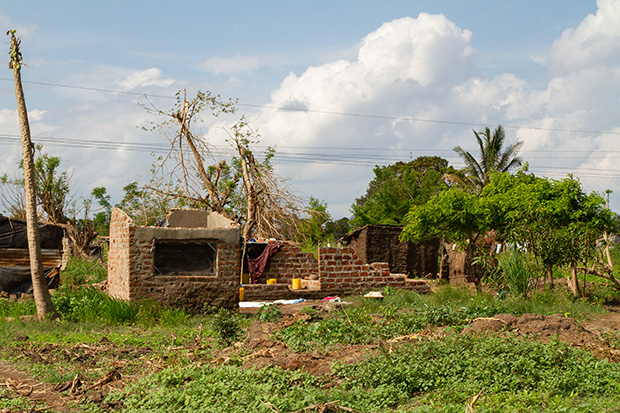Last month, the floods caused by Cycle Idai became southern Africa’s worst natural disaster. More than 1,000 were killed. Crop, infrastructure and housing damage were colossal. The World Bank estimates that Mozambique alone – one of the three countries affected – will need US$2 billion to fully recover. But, one month later, less than one quarter of the funds needed to rebuild have been pledged. Then, just this week, the world watched in horror at the fire which tragically engulfed and nearly destroyed the beautiful Notre Dame Cathedral in Paris. This much-loved church for centuries has been the spiritual and cultural home to the French, and well as a beacon of inspiration for millions of visiting tourists. Within hours of the fire, philanthropists had stepped forward to offer millions of dollars to help rebuild it.
What are we to surmise from the very different ways in which the public has responded to these two events? Why do people rush to help in some circumstances, but not in others, and what could their motivations could be?
I am myself somewhere in the middle of this debate, which has now become a fierce discussion on social media. Let me be transparent: I was born in France to a French mother, and French was my first language. I completely agree that that the Cathedral is a spiritual home for millions, and a timeless symbol of French cultural, political and literary heritage. Of course, I want it rebuilt!
But I am also an advocate for Climate Justice and for a greener, safer planet. I know that climate change is the biggest humanitarian challenge of our times and that we are still not yet laser focused enough on the scale and pace of solutions needed to protect the planet, and everything on it: ecosystems, water resources, people and communities, the oceans, coral reefs, plant life; the thousands upon thousands of living species which are now on the verge of extinction because of human activity. And people: we are not yet laser focused on the young children, older individuals, people with disabilities and marginalized groups; men and women who tend not to have much before disasters strike, and who have even less after.
Flood-affected communities in Mozambique, Malawi and Zambia need swift, scaled up, financial support as they try to rebuild their country, fight the cholera epidemic and claim back their agricultural lands. So do the hurricane affected communities in Haiti, Puerto Rico, Central America, Texas, North and South Carolina. And other extreme weather affected groups everywhere around the world, too many to enumerate here. So do yet others who must now prepare for the next, inevitable, weather-related disaster.
More than money, however, what is needed is for more ordinary people – particularly, but not exclusively in the wealthy, developed world; all of us, really – to better grasp the scale of the climate and environmental challenge that we collectively face: to grasp it, to take incremental steps to fully comprehend, and begin to accept responsibility for it. As Greta Thunberg, and scientists everywhere now warn us, we are all still owning the climate and environmental challenge too slowly. We are quick to save the Cathedral, but slow to act on the planet.
Could it be that we see the Cathedral as an innocent victim of disaster, but perceive disaster-affected communities to be responsible for their own calamities? Is it easier to respond to random, ad hoc events and to turn away when experts tell us that it is our own actions, our own lifestyles, our own hard to change habits, that are the root cause of unnatural disasters? Is it easier apportion blame elsewhere, rather than examine our own practices? Is it easier to give money if we don’t have to worry that it may be our very own actions that caused the disaster?
While it appears that the Notre Dame fire was purely accidental, climate change is not. We must open our hearts to this reality and accept responsibility for the human tragedies it causes. And we must change.
Today is Earth Day 2019. Celebrated annually since 1970, this year’s theme is the rapid extinction of species, caused by human activity and climate change. Experts say that the world is facing a mass extinction of species. Occurring this year during Holy Week observances, these activities provide an additional opportunity to pause and reflect about the impact of our actions.
Let us foster an inclusive, expansive understanding of our global heritage beyond historical monuments. Let us understand that people, communities, ecosystems, all species in the natural habitat are worthy of our understanding, compassion and of our charitable giving.
Every living species is a cathedral.
Jasmine Huggins is the Senior Policy and Advocacy Officer at CWS.

